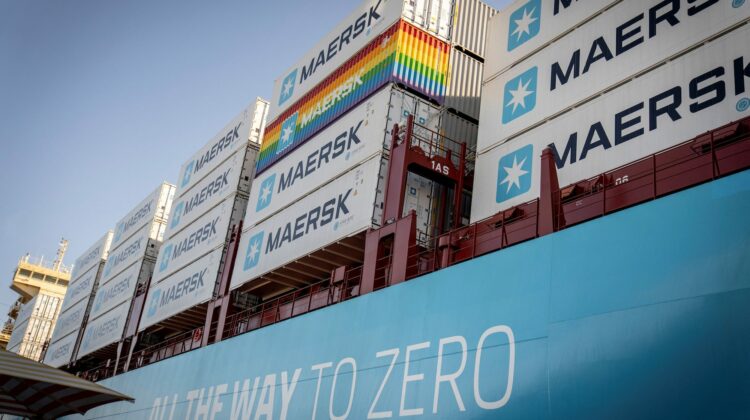
Maersk transports 3% of containers using green fuels in 2023
COPENHAGEN : AP Moller Maersk carried over 660,000 teu last year on vessels using green fuels last year. The use of green fuels saving over 683,000 tonnes of greenhouse gases from being emitted into the atmosphere.
“We have an ambitious goal to become a climate-neutral company by 2024. The 660,000 standard containers transported on green fuels in 2023 equal 3% of our global ocean transport volume and show that the low emission movement is taking large steps year-on-year,” said Johan Sigsgaard, Executive Vice President of Maersk.
Maersk defines ’green fuels’ as fuels with low (65-80%) to very low (80-95%) GHG emissions over their life cycle compared to fossil fuels. The fuels and the supply chain are verified by the International Sustainability and Carbon Certification (ISCC).
Maersk ECO Delivery Ocean products last year saw strong growth with 212 company’s clients opted for ECO Delivery Ocean for their seaborne cargo in 2023, with shippers from various sectors including retail, lifestyle, automotive and FMCG companies.
Maersk’s eco solution replaces fossil fuels with green fuels such as biodiesel and green methanol. According to the company, the biodiesel is solely sourced from waste streams and can lead to GHG emission reductions of above 80% on a well- to-wake basis.
“In 2023, we continued expanding our global bio-diesel supply infrastructure to key bunkering hubs in Europe and Asia. We will continue to rely on biodiesel as a base in our green fuel portfolio while building up the supply of other green fuels such as green methanol, Maersk is investing in new methanol enabled vessels of which the first eight very large ships (16,000-teu each) are entering Maersk’s fleet in 2024, with the first vessel, “Ane Maersk” already deployed,” Emma Mazhari, Head of Energy Markets in Maersk’s Energy Transition department, said.
“The green fuels for low and very low emission ocean transports used by us are all certified to ensure fully traceable, responsible feedstock and sourcing.”
Maersk noted that, up to now, the green methanol’s GHG reduction lies still below the figures of biofuels, but with the start of the scalable production of e-methanol, the emission reductions should go up to above 90% once the processes are all optimised.

